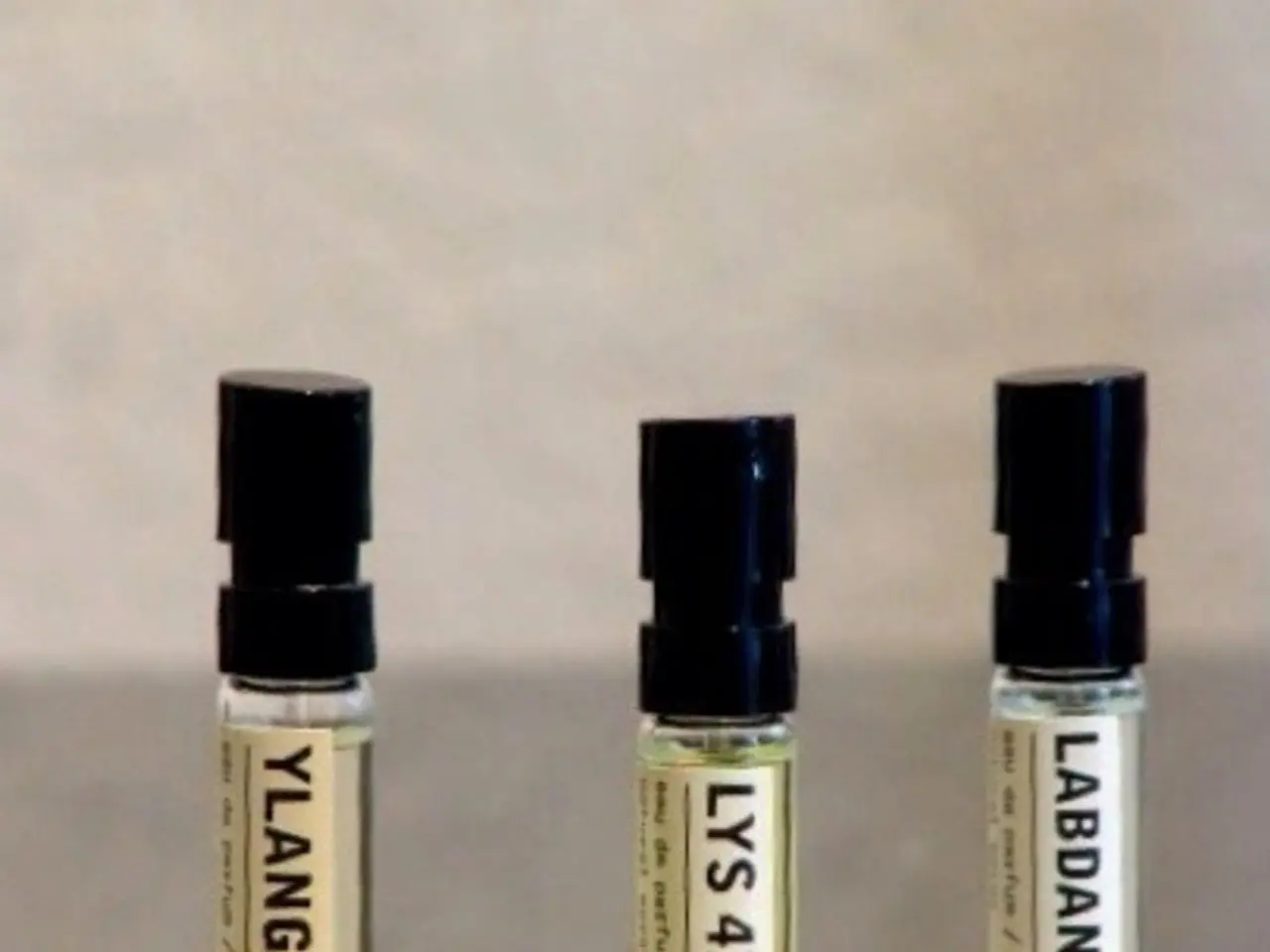Unraveling the Reasons Behind Perceived Aroma Appeal: Delving into Psychological, Biological, and Evolutionary Factors Influencing Scents' Attractiveness
In the intricate dance of human senses, the sense of smell stands out as a unique and powerful connector to our past, present, and future. Humans find some smells more pleasant than others due to a complex interplay of biological mechanisms, psychological processes, evolutionary adaptations, cultural conditioning, and personal experiences.
Biologically speaking, the olfactory system plays a pivotal role in this dance. Odor molecules enter our noses and are detected by olfactory receptors located in the olfactory epithelium in the nasal cavity. Humans have around 350 types of these receptors, each tuned to detect particular odor molecules, producing signals that the brain interprets as distinct smells [1][3]. The olfactory signals then make their way to the limbic system, the brain region involved in emotion and memory, tying smell perception closely to emotional responses and past experiences [1][2].
Psychologically, our brains associate smells with memories, emotions, and social cues. Strong connections between odor perception and memory/emotion regions mean that smells linked to positive experiences or social bonding are typically perceived as pleasant [1][2]. Conversely, odors associated with danger or spoilage are often found unpleasant, reflecting learned psychological responses conditioned by experience.
Evolution has shaped scent preferences to favor odors linked with safety, food sources, reproductive signals, and social communication. For example, the preference for certain plant or food aromas, such as rosemary’s invigorating scent with beneficial health associations, could be tied to adaptive advantages [4]. Similarly, subtle body odors that influence attraction and stress relaxation may play a role in social and reproductive behavior, hinting at evolved scent-based communication [5].
Cultural conditioning influences how individuals interpret and value smells based on cultural norms, traditions, and culinary practices. Different cultures may find the same odor pleasant or unpleasant due to learned associations, rituals, or symbols attached to scents, which override or modulate biological predispositions.
Personal experiences can greatly alter scent preferences by linking odors to individual memories, pleasant or traumatic events, or personal tastes. Since the olfactory pathway connects directly to emotional brain centers, personal odor history heavily impacts what smells a person finds pleasant or unpleasant.
In summary, pleasantness in smell arises from biological receptor specificity and brain processing, evolutionary survival benefits, culturally shaped perceptions, and individual memory-emotion associations, all blending to create unique scent preferences for each person [1][2][3][4][5].
Interestingly, unpleasant smells like spoiled food, garbage, or rotting flesh often evoke feelings of disgust, which may be linked to early survival mechanisms. On the other hand, scents such as fresh flowers, vanilla, or baking cookies often evoke pleasant memories of comfort, warmth, and security due to positive associations formed during childhood or repeated exposure to certain smells in environments that are perceived as safe or nurturing.
Understanding the complex interplay of factors influencing our sense of smell not only broadens our appreciation for the world around us but also opens doors to potential applications in fields such as fragrance design, health and wellness, and memory research.
Read also:
- Experiencing Life's Variety Firsthand: Gaining Insights from Life's Broad Spectrum of Experiences
- Food Regulatory Forecast | June 2023 Update from the UK
- "Desperate plea echoes over salt granules!"
- Generous Gift of AED 33 Million Saves Lives: A 14-year-old Boy, Along With 59 Others, Receives a Second Chance








